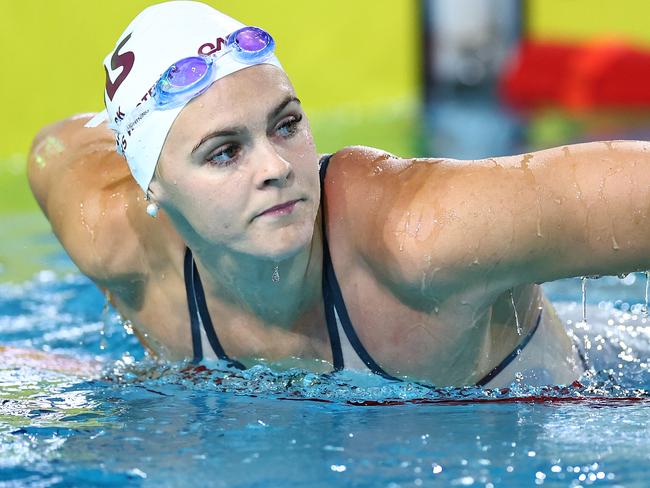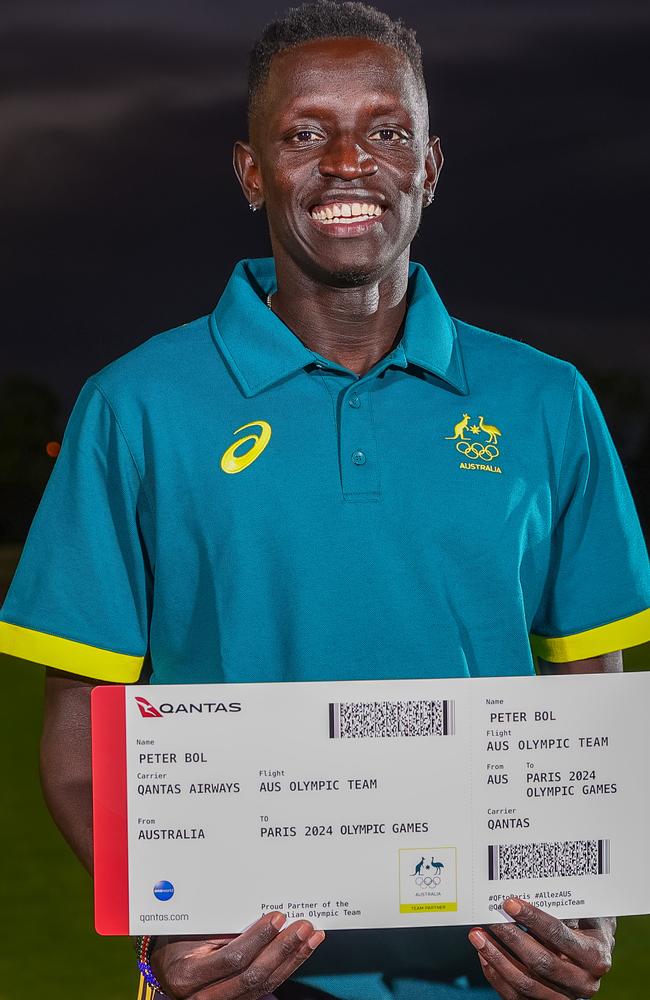Departing head of Sport Integrity Australia says Chinese doping saga threatens to erode athlete trust in the systems protecting them
David Sharpe is leaving his post as chief executive of Sport Integrity Australia, and in light of the Chinese swimming drugs scandal which has dominated sporting headlines in recent months, he has a parting message.
Olympics
Don't miss out on the headlines from Olympics. Followed categories will be added to My News.
After overseeing more than 3,000 complaints, the departing head of Australia’s sporting watchdog has a gripe of his own to report.
As he prepares to clean out his desk after building the world’s most comprehensive sporting agency, Sport Integrity Australia (SIA) CEO David Sharpe has one parting wish.
The former cop says sporting bodies and regulators must never lose sight of who they are meant to be protecting because sport won’t survive unless it’s a safe and clean haven for all participants.
And that means regulators have to be vigilant and take affirmative action to expose any wrongdoing, even if it involves ruffling a few feathers.
“If athletes and the community lose trust in the organisation we might as well pack up and go home,” Sharpe told this masthead.
“Then we don’t get 3000 cases and we don’t get 300 referrals to law enforcement.
“And if trust is lost, we don’t have that ability to influence and protect sports and educate anymore.”
Despite being cleared of any impropriety, the World Anti-Doping Agency (WADA) has come under widespread criticism for not contesting China’s explanation that the positive tests were all caused by contaminated food that was prepared in a hotel kitchen.
But the findings have raised concerns about apparent double standards because typically, athletes caught with banned drugs in their bodies are given an automatic ban, with the right to appeal.
SIA has always followed that strict protocol, which is contained in the WADA Code, and often been criticised for its hard line stance, as with the Shayna Jack and Peter Bol cases.

So Sharpe immediately called on WADA to explain its decision, just as he had previously done with the Russian doping scandal and where there were concerns about the reliability of EPO tests.
“We enforce the Code to the strictest standard of the rules and I expect that that same approach will be adhered to across the world,” he said.
“We’re waiting on the final report to see that clarity of process is clear so our athletes understand why we do what we do and ensure that every other athlete around the world is under the same system.”

While it started out as an anti-doping regulator, SIA’s role was dramatically widened to look at all integrity issues in sport, including protecting underage and female participants, largely off the back of the gymnastics abuse cases in the United States and Australia.
It’s a world-first organisation, which Sharpe has overseen from the ground up, employing more specialist staff and working with various agencies, including law enforcement, and ramping up education programs.
“So, it’s government and sport and law enforcement all owning the problem of threats to the integrity of sport in Australia because we want to protect it,” Sharpe said.
“When I first started, you had sports going here, there and everywhere and having no central guidance so it’s a place to come to for things to be dealt with, it’s a bit of a one-stop shop.
“If we can’t deal with it, we package it up, put a bow on it and take it out to the people that can, or guide the people through where they can go. Is it perfect? I don’t know what perfect looks like because no one’s ever done it, but I certainly know the fact that 3000 complaints coming to us tells us there’s some sort of level of trust.”
While proud of the way the agency has grown, Sharpe says there’s never any room for complacency because all sports, from the professional to grassroots, are vulnerable to a variety of threats, including doping, match fixing, gambling, physical and emotional abuse and governance issues.
“If we drop the ball, we’ll be in trouble,” he said.
“Sport in Australia is worth protecting but we’ve also got to be conscious that sport is a pretty good commodity to exploit.
“It’s a credit to Australian sport who have realised these behaviours have existed over time, realised the harm that has occurred to athletes in the past and wanted to change but they just didn’t know how to come.
“In some cases, absolutely, it’s brand protection and coverage at the expense of an athlete, and that might exist now, but there’s certainly a process in place now that calls that out.”





